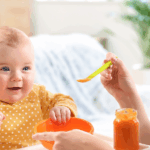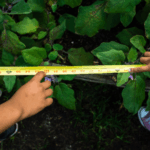Early years activity: What makes us the same?
This is a fun personal, social and emotional activity that helps children recognise shared qualities and build a sense of belonging. Through mirrors, games and a group drawing, children explore how similarities connect them while celebrating their uniqueness.
What makes us the same activity learning aims
- Help children recognise similarities between themselves and others
- Foster a sense of belonging and community
- Encourage kindness, inclusion and positive social interactions
- Develop confidence in expressing thoughts and feelings
- Support turn-taking and active listening skills.
Resources you will need for this activity
- A large mirror or small handheld mirrors
- A soft ball or toy for turn-taking
- Picture cards of diverse children (different ethnicities, abilities, hair textures, etc.)
- A large sheet of paper and pens/crayons.
What makes us the same activity outline
- Gather children in a circle and hold up a mirror. Ask, “What do you see when you look in the mirror?” and encourage responses. Pass the mirror around (or ask each child to look in their own) so each child can look at themselves
- Show the picture cards of diverse children and ask, “What do you notice about these children?” Guide them to notice similarities, e.g. “We all have eyes,” “We all smile,” “We all like to play”
- Pass a soft ball/toy around the circle. Each child says one thing they have in common with their friends, e.g. “We both like to run,” “We both have curly hair”
- On a large sheet of paper, draw a simple outline of a child. Ask children to add features that everyone has, such as eyes, hands, a smile
- Encourage the children to think of words to write around the picture to show shared qualities and feelings. You may prompt with ideas such as kind, happy, sad, friends
- End by saying, “Even though we are all unique, we have so many things in common that bring us together!”. Celebrate similarities while reminding children that our differences make us special too.
How to extend this activity
Share a story about friendship and belonging, such as “We’re All Wonders” by R.J. Palacio or “All Are Welcome” by Alexandra Penfold.
NDNA products to support you with this activity
Developing self-regulation, supporting well-being – Live Virtual Classroom
Disclaimer: Activities with children must always be risk assessed, including for allergies or choking. Children must always have adequate supervision. Resources and materials must always be appropriate for children’s age and stage of development.
- Activity
- MyNDNA
Similar Articles
Top tips: Using mathematical language everyday with young children
The new Statutory Framework for the EYFS places an emphasis on children developing a love of…
Read more 
Early years activity: Non-standard measures
Children need opportunities to physically experience and compare different types of measures such as length, size and height, so provide lots…
Read more 

